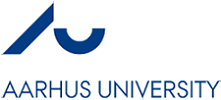International Economic Consulting

- What are the costs and benefits of spreading public sector activities, e.g. decentralize university educations to a higher degree?
- Should farmers in Bangladesh receive direct financial support or just price guarantees?
- How many cars will need a parking space in Copenhagen in 2030 – and how many public and private electric vehicle-charging stations are needed to accommodate the shift to hybrid and electric cars and car sharing?
- How can CO2 quotas be priced and distributed in a market efficient manner?
- Which pipelines should be built in order to secure the EU's future gas supply and should European countries still effectively ban fracking?
- In light of recent disruptions in global supply chains, should a company reshore production or diversify its international providers of inputs and intermediate goods to include more countries than currently?
These and many other problems, their increasing complexity, their positioning at the border between economics and management and their placement in international contexts have been the backbone of the steadily growing demand for International Economic Consulting services. Large multinational corporations, regional and national policy makers, international organisations (like the World Bank, the EU and the OECD) and a growing number of non-profit interest groups require sound economic analyses and feasibility studies for an impressive range of issues and industrial sectors.
The MSc programme in International Economic Consulting – which we have developed in close cooperation with major players of the industry – is organised to prepare students for various job functions within this context. The programme will provide you with up-to-date theoretical knowledge required for applied economic analyses; relevant quantitative and empirical methods suitable for sectoral studies, policy impact analyses and forecasting; the training and concepts required for the implementation of national and international project consulting and, last but not least, introduce you to an exiting international environment.
Į magistro studijų programas gali stoti visi, baigę universitetą arba besimokantys paskutiniame kurse. Studijos kurias baigei ar tebesimokai turi būti panašios krypties kaip ir tos, į kurias nori stoti, kadangi priėmimas yra paremtas ECTS kreditų suderinamumu.
ECTS kreditų išrašas - jei dar nesi baigęs aukštosios mokyklos, būtina prisegti ECTS kreditų išrašą, kuriame būtų matyti, kokius dalykus Tu mokeisi bei kokius pažymius ir kiek kreditų už juos gavai. Kai siunti anketą paskutiniame kurse, diplomą reikia prisegti vėliau, kai tik jį gausi.
Bakalauro diplomas – jei jau esi baigęs aukštąją mokyklą, išrašo nereikia, užtenka prie anketos prisegti savo Bakalauro diplomą.
Anglų kalbos žinias gali patvirtinti vienu iš šių būdų:
- IELTS – 6.5
- TOEFL – 83 . Aarhus universiteto TOEFL kodas yra 8935.
Students that hold a degree from another university
If you hold a degree from another university, your qualifications will be assessed once you have applied for admission. The assessment will prioritize the sufficient content of the following subjects and ECTS-points:
- Methods* 15 ECTS
- Marketing 7,5 ECTS
- Finance 7,5 ECTS
- Accounting 7,5 ECTS
- Organisation- and Leadership Theory 7,5 ECTS
- Microeconomics 5 ECTS
- Operations Management 5 ECTS
- Additional ECTS points within the abovementioned areas 20 ECTS
- Total ECTS within Economics and Business Administration 80 ECTS
*Please note, applicants must have at least 15 ECTS within methods including at least 10 ECTS within quantitative methods or statistics.
Admission to the MSc in Economics and Business Administration for applicants with a professional bachelor’s degree (professionsbachelor)
In order to meet the admission requirements for the MSc programmes in Economics and Business Administration, applicants with a specific professional bachelor’s degree must have completed specific elective courses as part of their qualifying exam. In this table the requirements for elective courses are laid out.
Along with the application the applicant must upload:
- Course descriptions in English briefly describing the contents of the applicant's specific BA courses or other information that will contribute to describing the contents of the applicant's Bachelor's degree programme (may be translated by the applicant, but certified by the applicant's university).
- Official descriptions of relevant courses to be completed after the application deadline.
- An official description of the marking scale used at the applicant's home university.
The study programme provides the graduate with specialist knowledge within the disciplines of the study programme that give the graduate high academic qualifications to develop solutions to issues pertaining to business administration in companies and organisations in the public and private sectors.
Through the study programme, the graduate has acquired knowledge that enables the graduate to:
- Understand and consider knowledge pertaining to the various disciplines as well as identify academic issues
- Master the scientific methodologies and tools of the various disciplines as well as master general skills associated with employment within the areas studied
- Assess and choose among the scientific methodologies and tools of the various disciplines as well as develop new analysis and solution models
- Discuss professional and academic issues with both specialists and laymen
- Manage work and development situations that are complex, unpredictable and require new solution models
- Initiate and carry out, on an independent basis, monodisciplinary and interdisciplinary collaboration and take professional responsibility
Career opportunities for graduates in MSc IEC include the following possibilities:
- Consultant in International Consulting Companies;
- Analyst in regional and national governments;
- Consultant in International Organisations and Development Agencies;
- Economist with non-profit organisations;
- Economist/Analyst with multinational companies, banks or industrial interest groups.

